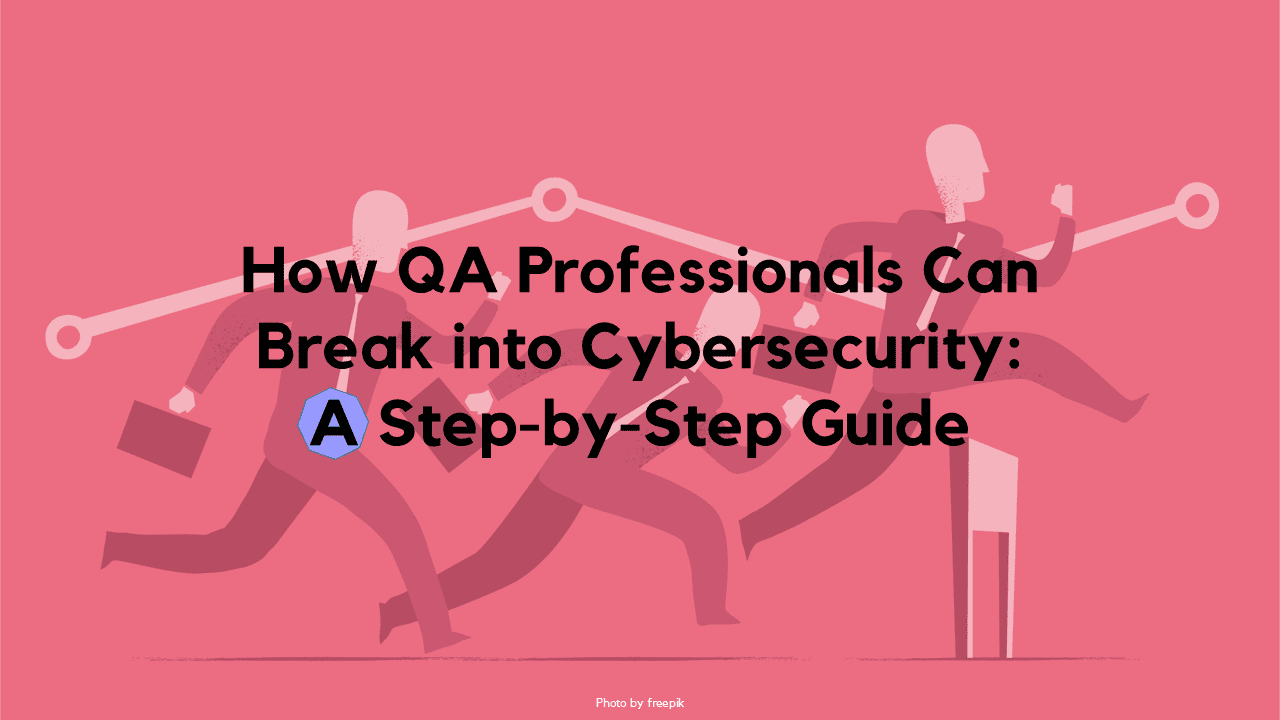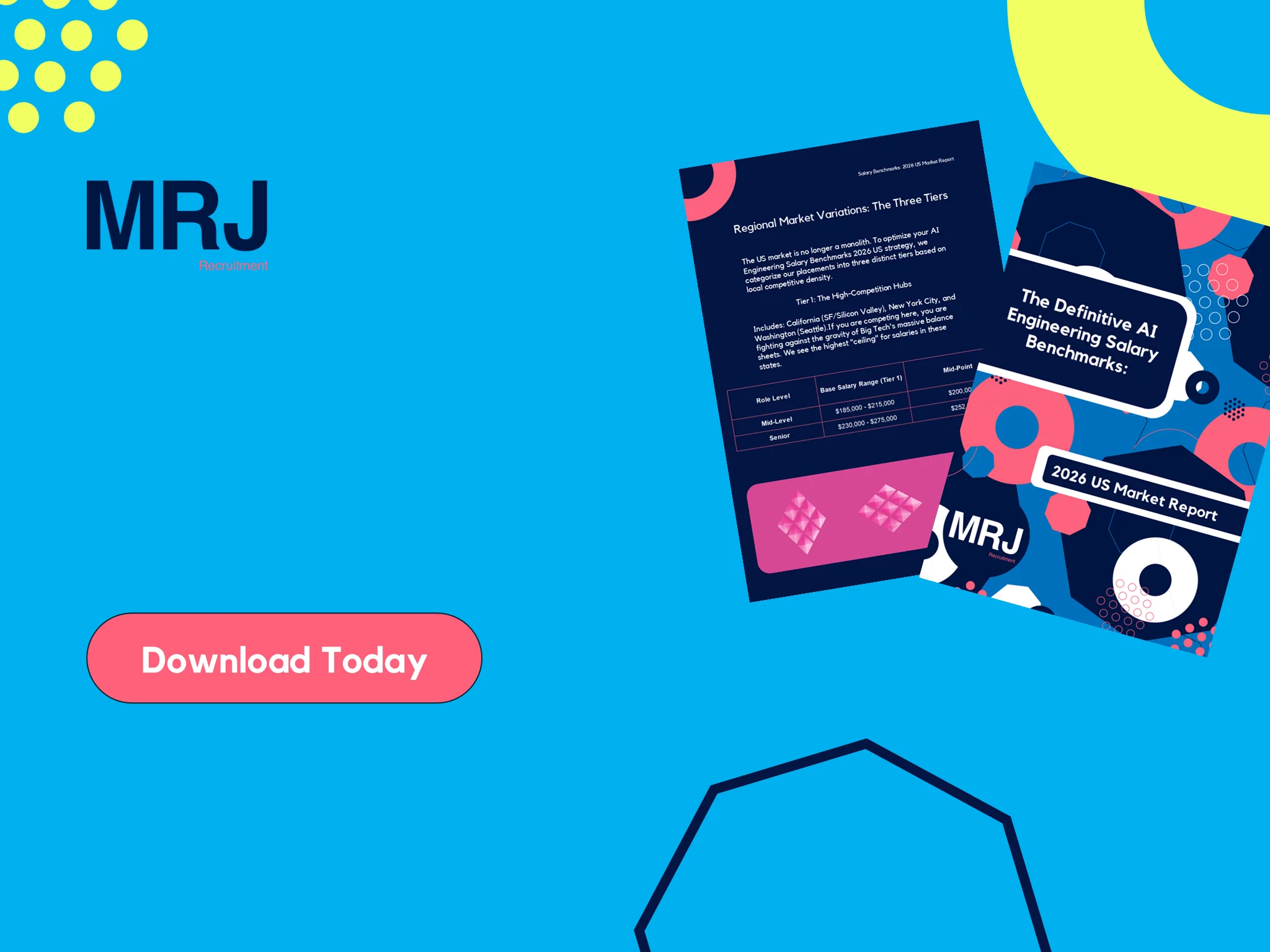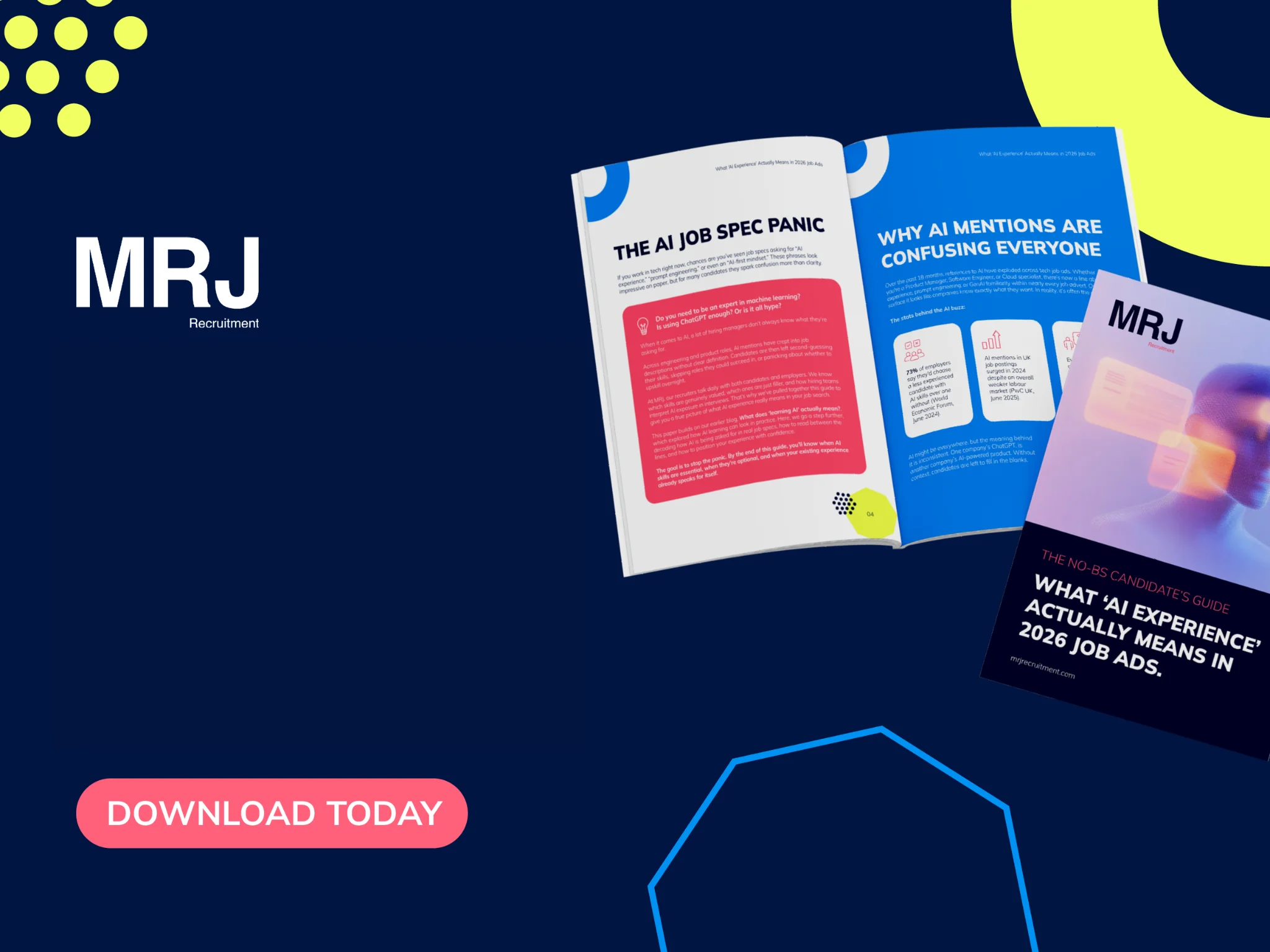How QA Professionals Can Break into Cybersecurity: A Step-by-Step Guide
19 May, 20256 minutesHow QA Professionals Can Break into Cybersecurity: A Step-by-Step GuideAt MRJ Recruitment, w...

How QA Professionals Can Break into Cybersecurity: A Step-by-Step Guide
At MRJ Recruitment, we’ve seen, guided and watched countless professionals retrain themselves into new fields with varying levels of success depending on the person and the number of transferable skills they possess.
However, one of the most seamless transitions bare witnesses to repeatedly over the past few years is QA Testers and Engineers transitioning into Cybersecurity.
But why is this? and what steps can potential QA talent do to help make the shift as painless as possible? We break it all down below…
Why QA Engineers Are Debating Switching to Cybersecurity
At its core, both areas need talent with a keen for detail and a deep understanding of system vulnerabilities, combined with a natural ability to implement preventative measures.
In essence, QA engineers are already tasked with identifying weaknesses in products before their release, ensuring a secure and reliable final version. This approach mirrors the work of cybersecurity engineers, who work to detect and remediate system vulnerabilities before malicious entities can exploit them.
Furthermore, the transferable skills between the two fields are significant. QA professionals are adept at testing systems under several different conditions and scenarios, a tactic directly applicable to how cybersecurity experts approach system security.
Consider penetration testing for example, a prominent role in cybersecurity, which syncs quite smoothly to a QA tester searching for bugs within a system. This fundamental skill of identifying weaknesses forms an ideal launchpad for a career transition into the cybersecurity domain.
Cybersecurity: A Fast-Growing Field with High Demand
The digital landscape is constantly evolving, and with that comes an increase in cyber threats and attacks. As organisations further digitise their infrastructure (especially post-pandemic), there’s an increasing need to protect sensitive data and systems.
The good news is that you don’t need to look outside of your existing team. QA professionals have the skills and mindset necessary to thrive in cybersecurity. With a bit of additional training and focus on security-specific testing, you can make the leap from QA to cybersecurity.
Transferable Skills: How QA Strengths Benefit Cybersecurity
When transitioning from QA to cybersecurity, it’s essential to recognise the many transferable skills. Let’s explore some of the most important qualities that QA professionals bring to the cybersecurity table:
1. Attention to Detail
QA professionals as standard usually have great eye for detail, often spotting issues that others may miss. This ability is invaluable in cybersecurity, where the smallest vulnerability can lead to significant security breaches. Cybersecurity professionals must identify potential weak spots in networks, applications, and systems. The meticulous nature of QA testing is a critical advantage here.
2. Systematic Approach to Problem Solving
QA testers are experts in breaking down complex systems and systematically testing every part. Cybersecurity experts need a similar ability to understand how systems interact and where things can go wrong. This ability to analyze and troubleshoot complex systems is essential when identifying vulnerabilities and ensuring robust defenses.
3. Problem-Solving and Critical Thinking
Cybersecurity is fundamentally about solving problems and mitigating risks. QA professionals are already adept at this—they regularly identify potential issues and devise solutions before they escalate. Whether it’s debugging code or uncovering system weaknesses, these problem-solving skills are directly applicable to cybersecurity tasks such as penetration testing and risk assessment.
4. Familiarity with Automation and Scripting
In QA, automation is frequently used to streamline repetitive testing tasks. This skill is transferable to cybersecurity, where professionals use automation scripts to scan for vulnerabilities, manage security events, and optimise testing processes. Automation tools like Selenium, used in QA, are often applied in cybersecurity for automated vulnerability scans and penetration testing.
How to Transition from QA to Cybersecurity
While QA professionals bring a wealth of transferable skills to the table, there are a few areas where additional expertise is necessary to transition into cybersecurity roles. Here are some essential steps you can take to facilitate this career change:
1. Understand Cybersecurity Fundamentals
Before making the leap, it’s important to build a solid understanding of core cybersecurity concepts. This includes understanding common types of attacks (e.g., SQL injection, cross-site scripting), network security, and how to mitigate threats. Key certifications such as CompTIA Security+, Certified Ethical Hacker (CEH), and Certified Information Systems Security Professional (CISSP) are highly recommended to establish a foundational knowledge of the cybersecurity landscape.
2. Focus on Security Testing
Security testing is a natural next step for QA professionals. In fact, security testing is similar to QA testing in many ways—it’s about identifying vulnerabilities, running tests to exploit weaknesses, and ensuring that systems are as secure as possible. Specialising in ethical hacking or penetration testing will make your transition from QA to cybersecurity even smoother.
3. Learn Coding and Scripting
While not all cybersecurity roles require extensive coding, understanding programming languages is incredibly helpful. Many cybersecurity roles, including penetration testing and security analysis, require knowledge of languages such as Python, JavaScript, and C++. Learning how to write and understand code will expand your capabilities and open up additional opportunities in the cybersecurity field.
4. Gain Hands-On Experience
The best way to learn cybersecurity is through hands-on practice. Platforms like Hack The Box and TryHackMe provide virtual environments where you can practice security testing and penetration techniques. Participating in these activities will give you valuable experience and a deeper understanding of the practical side of cybersecurity.
Real-Life Examples: QA Professionals Who Successfully Transitioned to Cybersecurity
At MRJ Recruitment, we’ve had the pleasure of working with many QA professionals who have made the successful transition into cybersecurity. One example is a QA engineer who began by specialising in security testing within their existing QA role. Through dedication and additional training in ethical hacking, this professional became a valuable cybersecurity team member.
Another example is a QA tester who leveraged their automation and scripting skills to take on cybersecurity-related projects, eventually moving into a full-time cybersecurity position. With hands-on experience and a keen understanding of security principles, they quickly rose through the ranks.
The Growing Career Opportunities in Cybersecurity
Cybersecurity offers a wealth of career opportunities, from penetration testing to security analysis, network security, and security engineering. As the demand for cybersecurity professionals continues to grow, more organisations are realsing the value of hiring professionals with QA backgrounds. QA professionals who transition into cybersecurity can benefit from a robust career path and the opportunity to work on cutting-edge security solutions.
At MRJ Recruitment, we specialise in helping talented professionals make these career shifts. Whether you’re looking to pivot from QA to cybersecurity or advance your cybersecurity career, we can help connect you with roles that align with your skills and goals.
Conclusion: Transitioning from QA to Cybersecurity
The transition from QA to cybersecurity is not only possible but also highly beneficial for both individuals and organisations. QA professionals possess a unique set of skills that make them ideal candidates for cybersecurity roles. With a bit of additional training and hands-on experience, QA professionals can successfully pivot into the fast-growing field of cybersecurity.
If you’re ready to take the next step in your career and explore opportunities in cybersecurity, reach out to MRJ Recruitment today. Let us help you unlock your potential and secure a fulfilling role in the world of cybersecurity!
At MRJ Recruitment, our commitment to the QA community is stronger than ever. Our dedicated QA division is alive and well, working closely with professionals across the industry to provide tailored advice, career guidance, and support. Whether you're staying in QA or exploring new paths like cybersecurity. We also host MCR.TEST, our growing QA and testing-focused networking event, where you can connect with like-minded professionals, hear from industry experts, and stay ahead of the curve. If you're considering a move or just want to explore your options, get in touch, we’re here to help.




